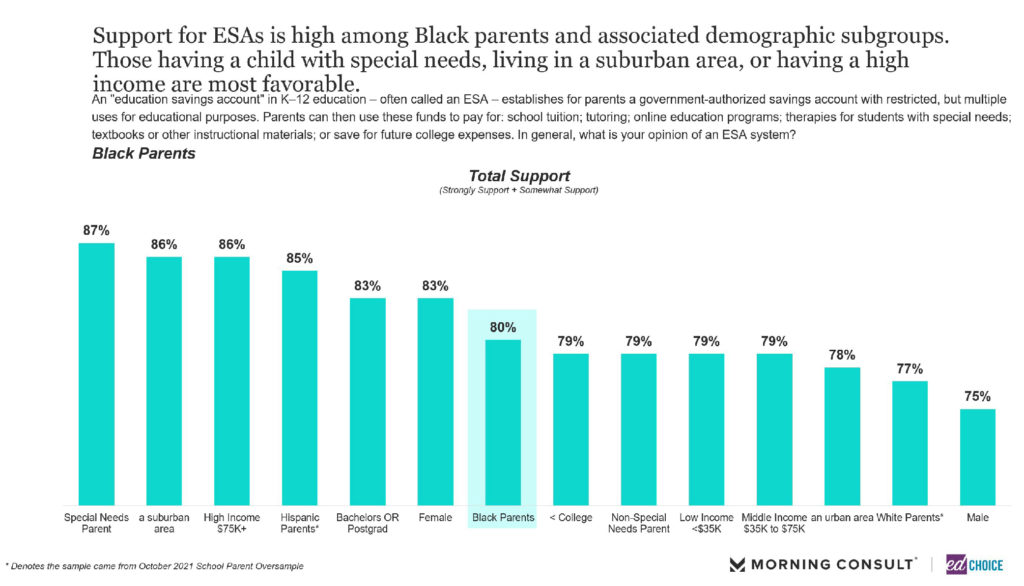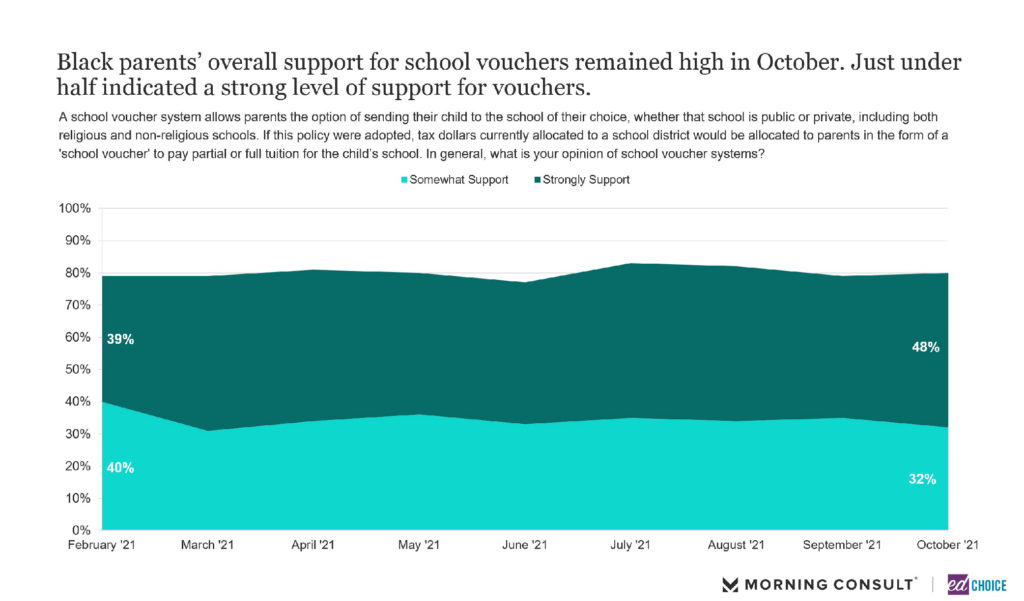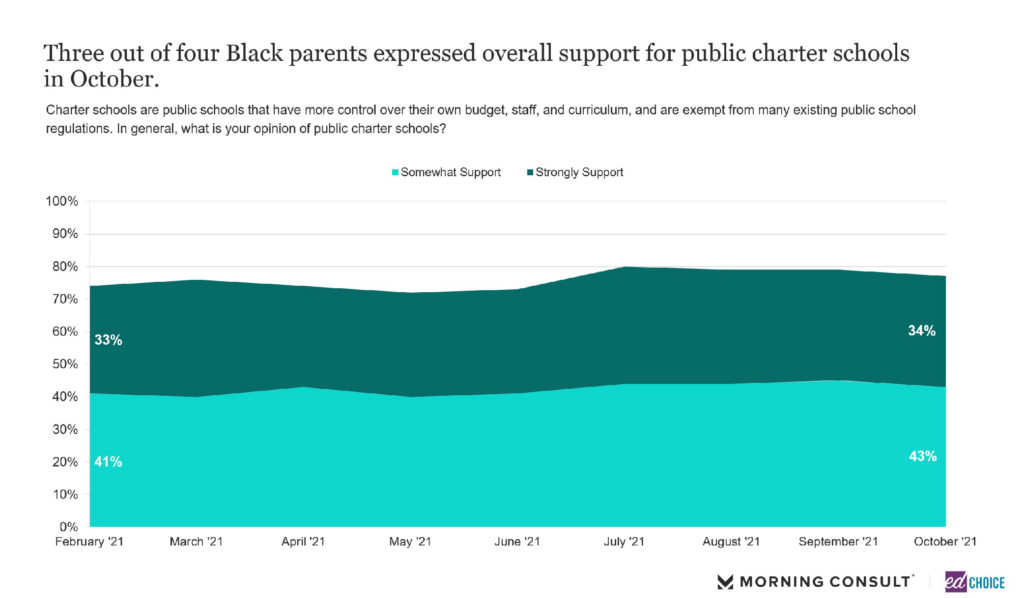Public Opinion Tracker Deep Dive: Black K-12 Parent Perspectives (October 2021)
October can be make-or-break time for some families. Solidly midway through the first semester, parents can begin to see how their child’s school is working out for them. Fatigue or stress from families and educators alike can begin to compound, forcing each to make choices about what they are going to prioritize. And in yet another uniquely tumultuous school year, Black families continue to face distinct constraints and pressures, and their children experience unique consequences of their parents’ and schools’ actions and decisions.
This makes October an interesting time to check in on our monthly survey of Black parents. This week we posted our full brief based on our polling of Black parents between Oct. 11 and Oct. 21. During that period, we obtained completed surveys from 444 Black parents of school-aged children, which includes an oversampling of 300 Black parents. We also obtained responses from a nationally representative sample of 1,121 K–12 school parents, which includes an oversampling of 700 school parents.
Here are some highlights from our most recent wave of polling:
1. Black parents are increasingly comfortable with in-person education. In each month since the 2020-21 school year began in August, an increasing share of Black parents have said they feel at least somewhat comfortable with their children returning to the classroom. In October, 61 percent of Black parents reported feeling comfortable with in-person schooling, an increase of eight percentage points from September. In comparison, white parents grew more comfortable with classroom learning by six percentage points.
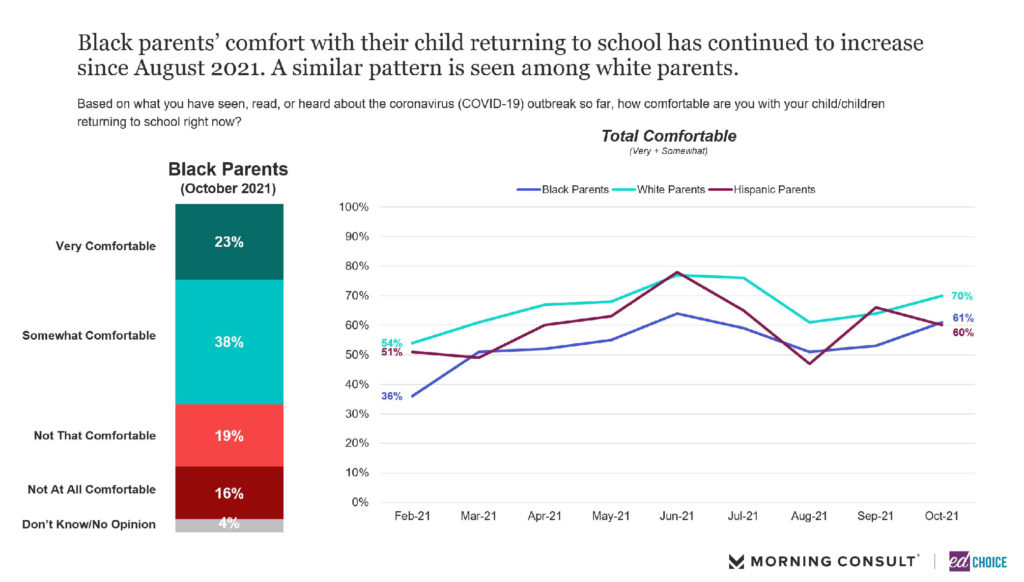
2. Black parents are somewhat more positive about how various public authorities have handled K-12 education. We asked parents to assign grades to the Biden Administration, their local school district board, their state legislature, and their governor based on how each entity has managed K-12 education. The largest disparity in responses between Black and white parents is found regarding the Biden administration, with Black parents 21 percentage points less likely to assign a “D” or “F” grade. Black parents also are four points more likely to assign an “A,” “B,” or “C” grade to their school board and state legislature than white parents. White parents were more likely to assign polarized grades, with greater shares giving “As” and “Fs” to school boards, state legislatures, and governors.
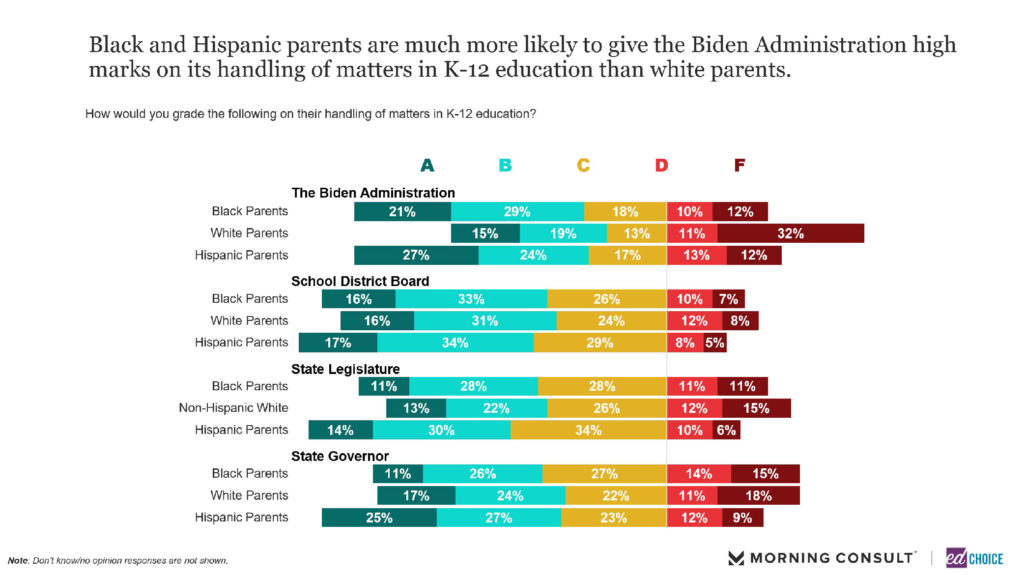
3. Desire for at least some home-based education remains high. The share of Black parents whose ideal school week involves all five days of education taking place outside the home was 31 percent in October, essentially unchanged from September. Preference for education taking place completely at home decreased from 23 to 16 percent, while preferences for two or three days at home increased seven points to 32 percent.
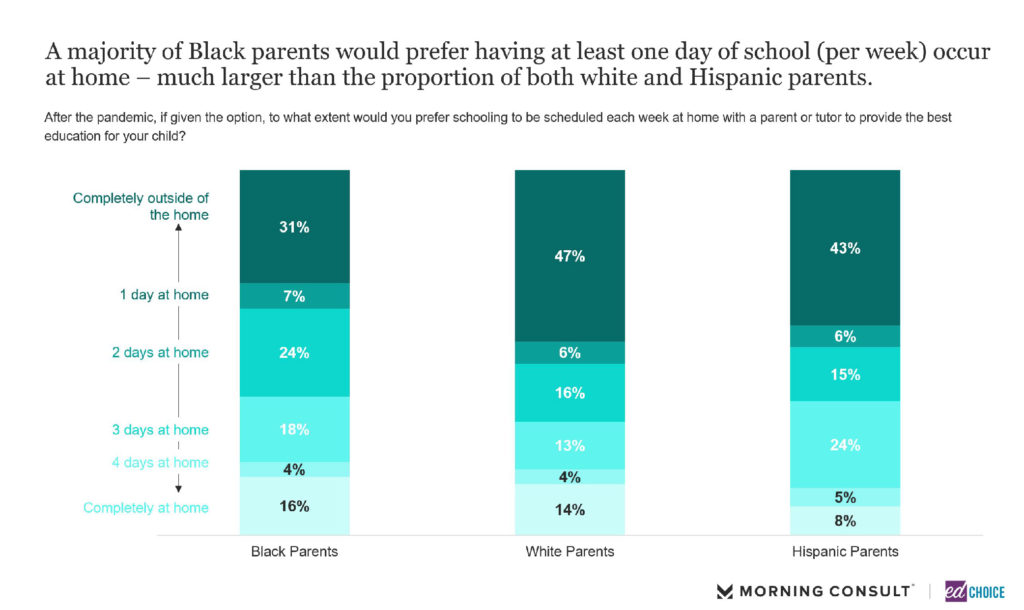
4. School choice remains a popular policy among Black parents. Favor for three major school choice policies remains similar to what Black parents reported in September. Eighty percent support education savings accounts (ESAs) and school vouchers, while 77 percent support charter schools. Nearly half of Black parents reported strong support for vouchers. All three policies saw a jump in support in early-to-mid summer and have maintained that favor through October.
